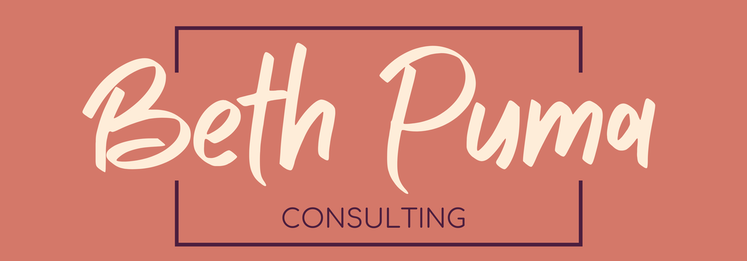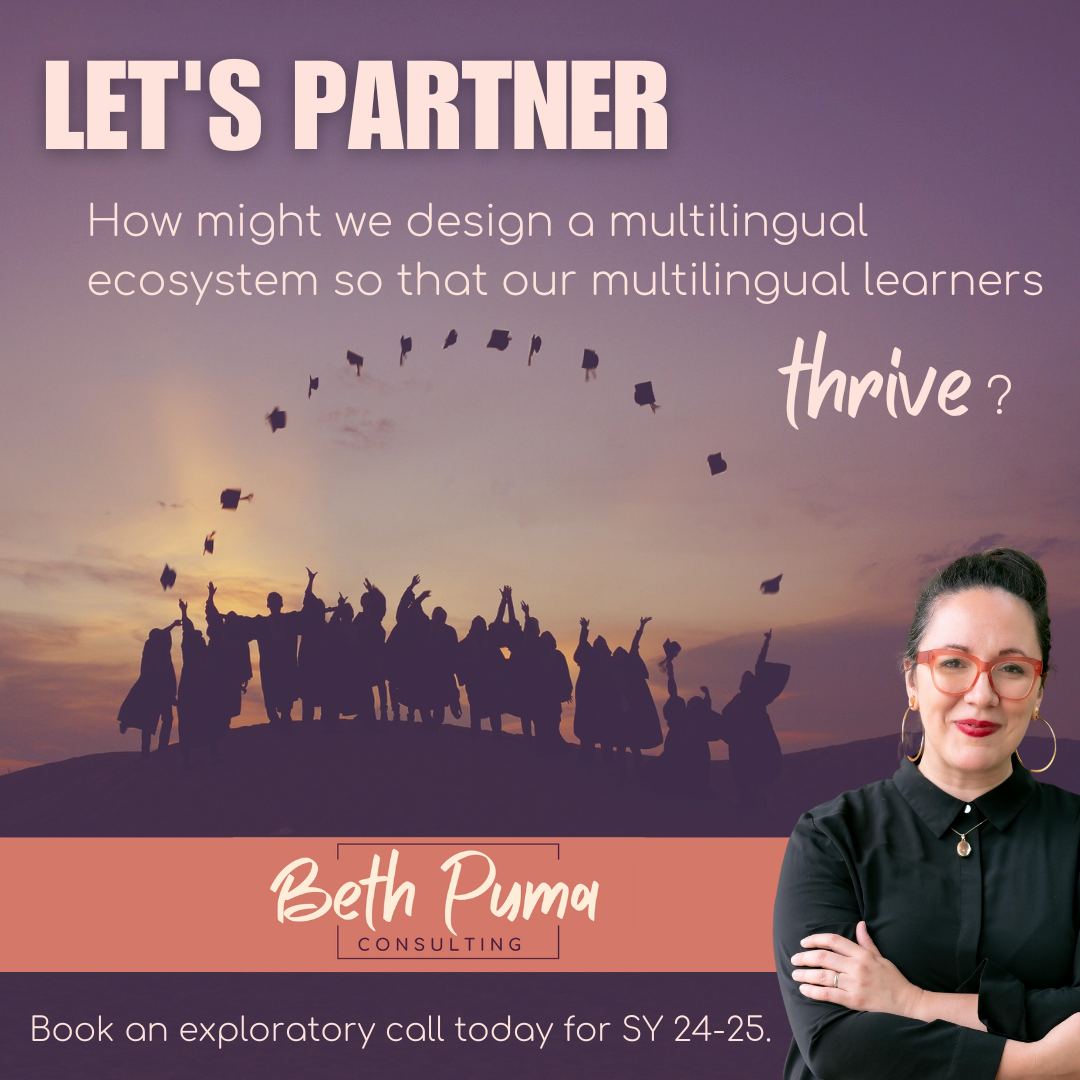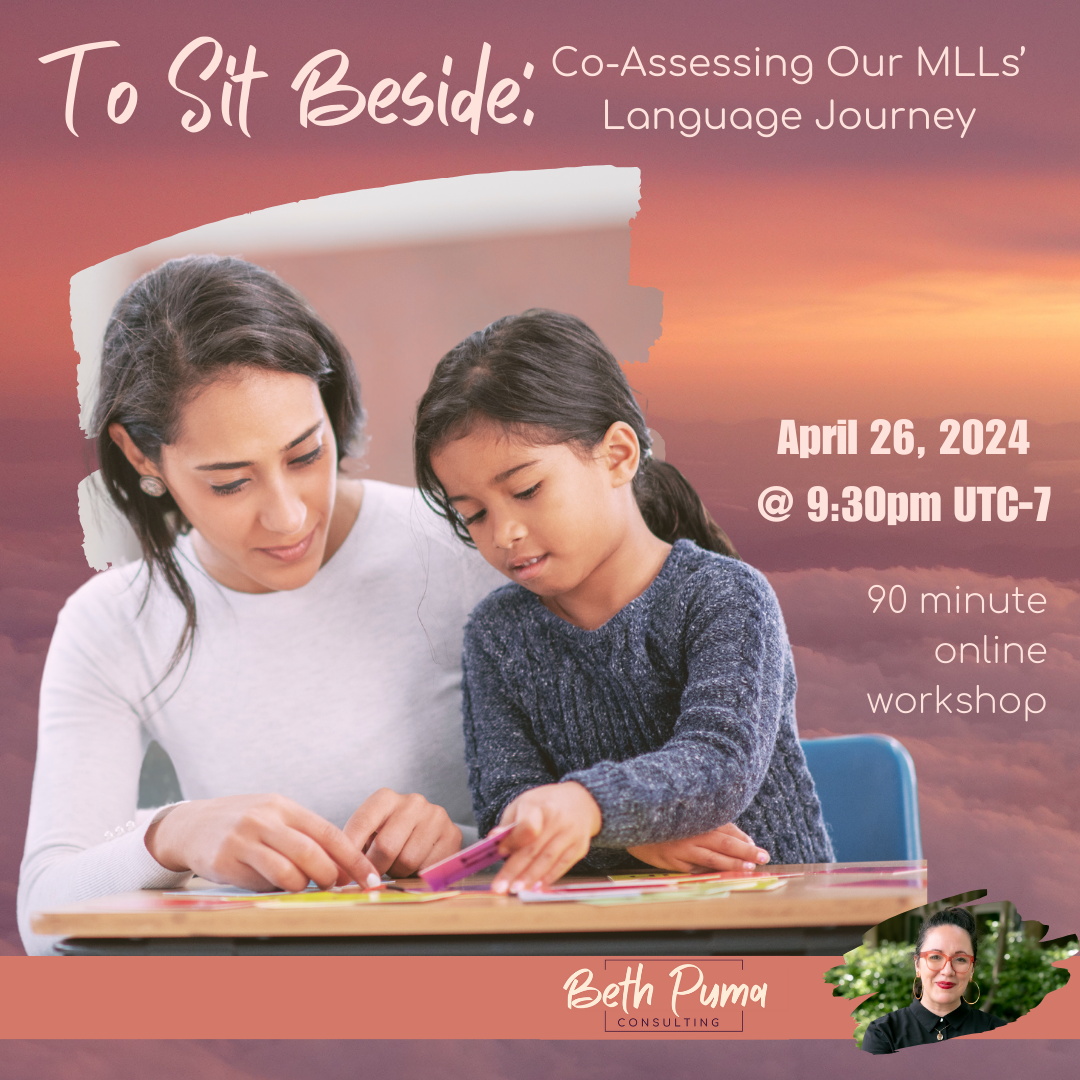|
Ecosystems are interdependent elements. As educators who serve multilingual learners... so are we.
Head on over to my MLL Ecosystem Project to learn more. Fall 2024 cohorts are forming. Don't sleep on this amazing opportunity to be connected with other like-minded educators as we build the educational landscape that our multilingual learners deserve.
0 Comments
Happy Birthday to Beth Puma Consulting! 7 years ago I started this journey. 1 year ago I shifted to full time.
A simple idea. Transforming our hearts, our classrooms, our world so that our multilingual learners can thrive can thrive. Newsletter friends, check your inbox this week for a small gift. I finally sat down and composed some extended thoughts on this idea I've been shouting across the rooftops (of social media) for years. Super grateful to the Educator Collaborative for all their continued support and inspiration. They push me to be a better educator.
You can read my full post here at the Educator Collaborative's blog. This school year I have had the pleasure of working with international schools in Germany 🇩🇪, China 🇨🇳, Japan 🇯🇵, Vietnam 🇻🇳, and Singapore 🇸🇬. I've worked with individual clients in the Democratic Republic of Congo 🇨🇩, Taiwan 🇹🇼, Hong Kong 🇭🇰, Japan 🇯🇵, and Thailand 🇹🇭 to name a few. I've presented at international workshops for schools in North America, South America, Africa, and Asia. It's been a busy year full of "roll up your sleeves work" and joy! Yet, with one foot in the present I have to keep looking at the horizon. I am booking my 24-25 school year partnerships now.
I offer a wide range of consulting services (in person and online) on all the ways we can create conditions where multilingual learners thrive. Here are just some of my favorite professional learning workshops (including testimonials) that I have developed over the years.
My favorite work with schools is sustained partnerships, that employ strategic design with leadership, interactive workshops, and ongoing coaching with teams and individuals. Interested? Let's set up an exploratory call. Join me for an interactive online event where we will explore ideas of co-assessment of our multilingual learners' language journeys.
|
Beth PumaI am an MLL specialist, coach, and educational consultant that is dedicated to building a more transformative educational landscape that honors linguistic diversity and challenges societal paradigms. Archives
July 2024
Categories
All
|




